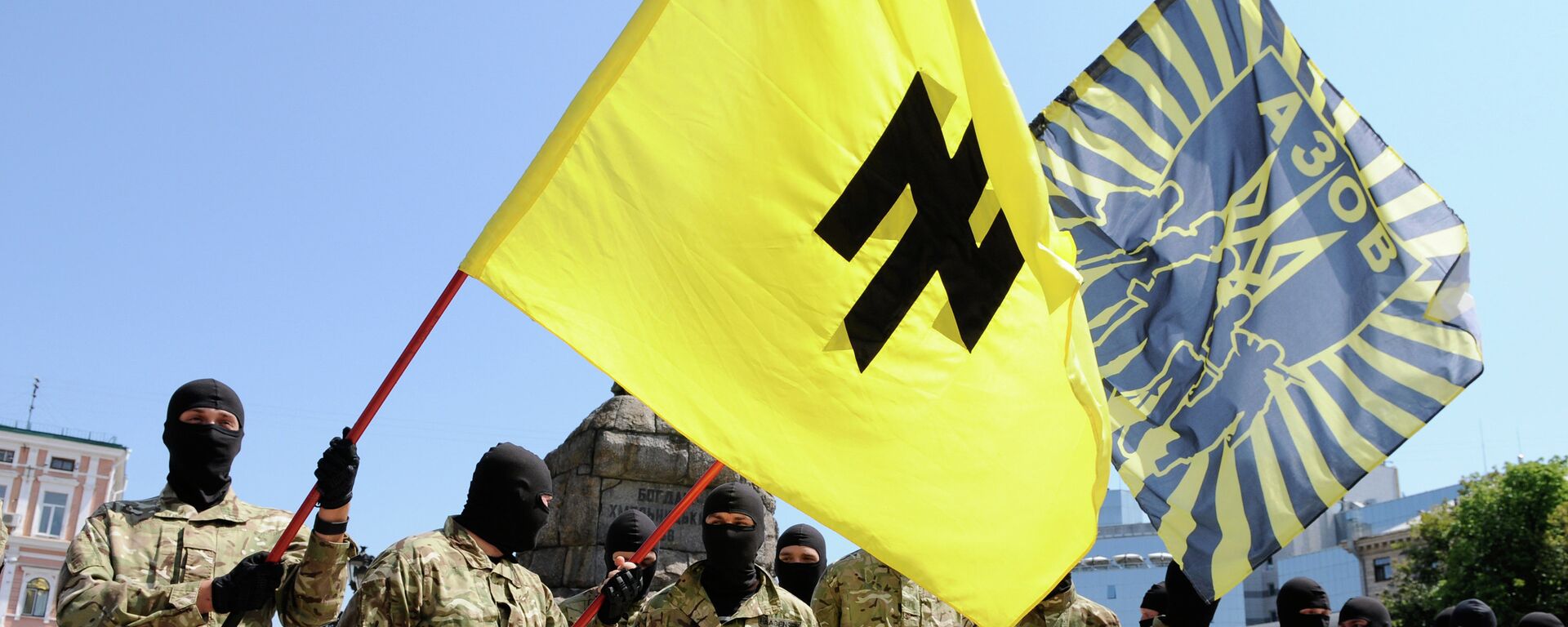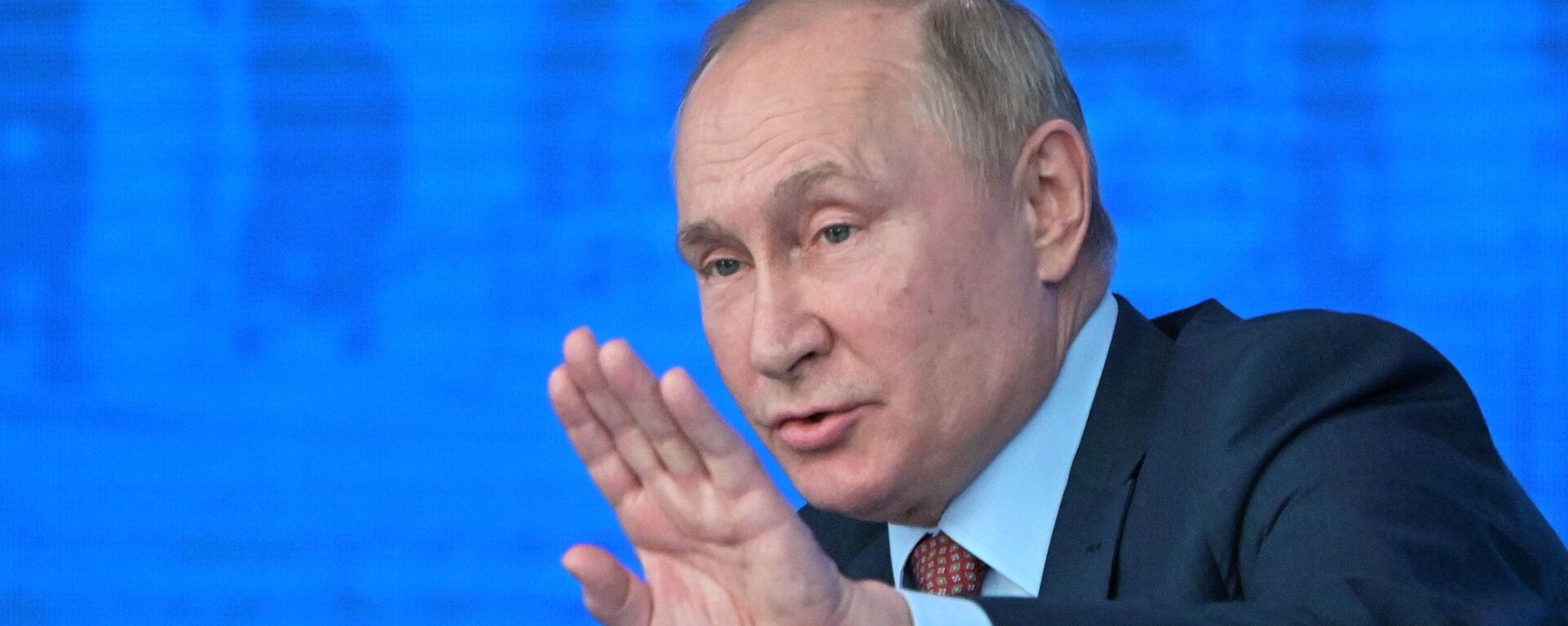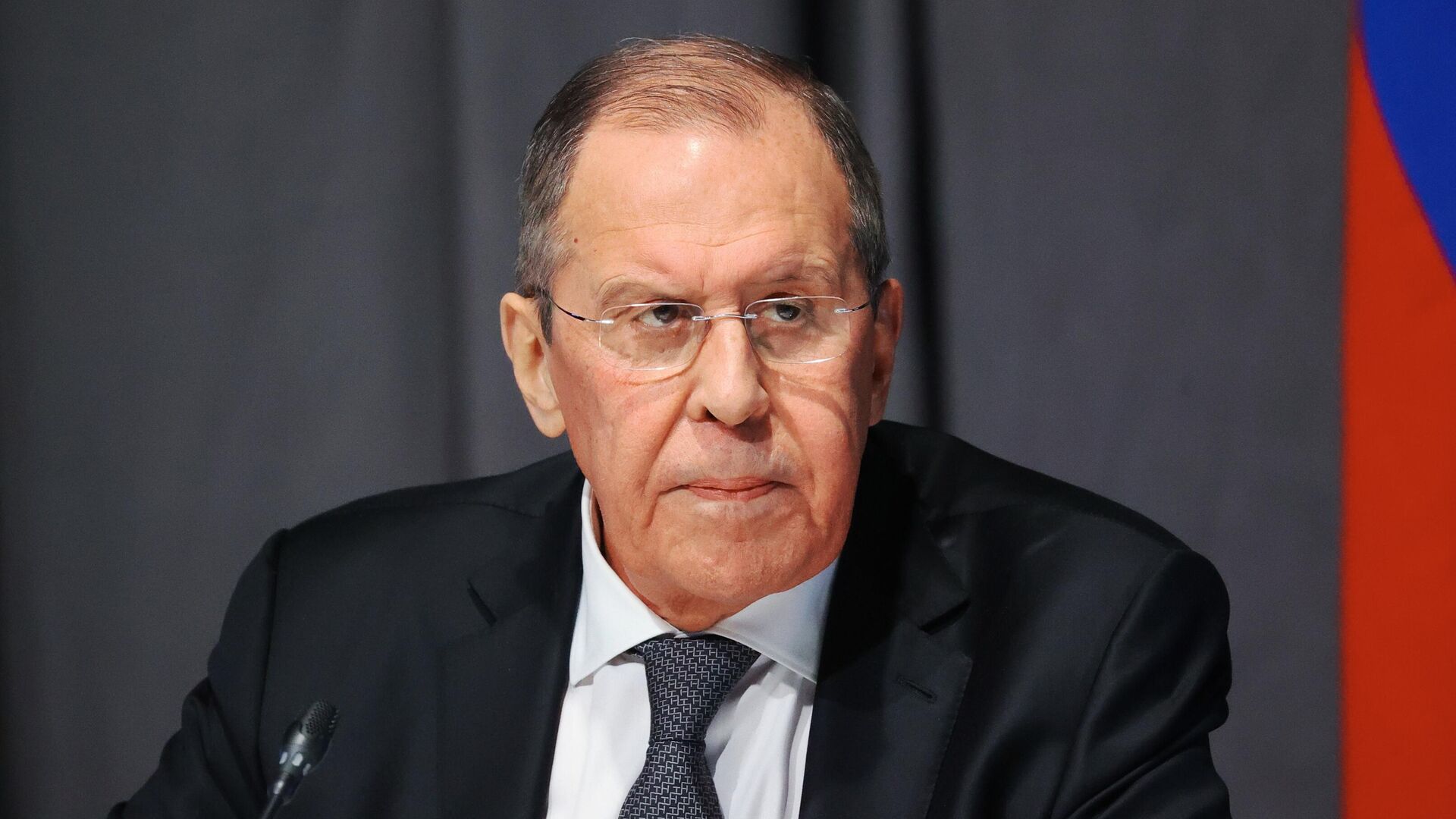https://sputnikglobe.com/20211222/first-round-of-russia-us-talks-on-security-guarantees-set-for-early-2022-lavrov-says-1091715005.html
First Round of Russia-US Talks on Security Guarantees Set for Early 2022, Lavrov Says
First Round of Russia-US Talks on Security Guarantees Set for Early 2022, Lavrov Says
Sputnik International
Russian Foreign Minister Sergei Lavrov earlier confirmed that the White House had signalled its readiness to engage in negotiations with Russia on its security proposals.
2021-12-22T09:18+0000
2021-12-22T09:18+0000
2022-08-06T13:27+0000
world
russia
sergey lavrov
security
nato
us
https://cdn1.img.sputnikglobe.com/img/07e5/0c/16/1091715577_0:0:3225:1815_1920x0_80_0_0_635d7f4085760547daac44b7601401b1.jpg
The first round of security talks between Russia and the United States is set to take place in early 2022, Russia's Foreign Minister Sergei Lavrov revealed on Wednesday in an exclusive interview with RT.He also noted that Moscow intends to raise the issue of security guarantees with the OSCE.According to the foreign minister, Washington's reaction to the security proposals from Moscow was "business-like". Lavrov pointed out that there are certain fundamental points in the security proposals for Moscow, but Russia is interested in negotiations and ready to discuss various positions.The foreign minister earlier confirmed that the White House had expressed a readiness to engage in talks with Russia on the proposals, which include NATO not expanding eastwards and not placing offensive weapons in the countries neighbouring Russia.Washington, for its part, asserted that it is ready to work with Russia on the security proposals even though there are some items that it deems "unacceptable" to the United States. The White House also said that it believes the negotiations "will be more productive if they happen in an environment of de-escalation instead of escalation".Late Tuesday, the US Department of State claimed Russia was responsible for "escalating tensions" in Ukraine, following weeks of accusations of Moscow "amassing" troops near the Ukrainian border. The Russian Embassy in the United States dismissed the claims, calling on the State Department "not to distort reality".Warnings to 'Hotheads'In Wednesday's interview, Lavrov made it clear that Russia does not want a war to occur, but will ensure the nation's security with all the means available to it. The foreign minister underlined that threats have been looming over Russia in recent decades as NATO's military infrastructure continues to move closer to Russia's borders. He also highlighted the necessity of legal agreements, not verbal promises, regarding the security proposals.Additionally, he warned Ukraine and the West against any military confrontation.The foreign minister also referred to Tuesday's statements by Russian President Vladimir Putin concerning Moscow's ability to "take adequate retaliatory military-technical measures, and react toughly to unfriendly steps".Vienna TalksLavrov also shed light on the progress in the negotiations regarding the possible restoration of the JCPOA, or Joint Comprehensive Plan of Action, also known as the Iran nuclear deal. The talks have been ongoing in Vienna, with the latest round concluding earlier in December and another round set to begin after the Christmas holidays.According to Russia's foreign minister, the Vienna negotiators are working on a package of agreements aimed at restoring the JCPOA and there is a good chance this will occur.The JCPOA was inked in 2015 between Iran and the P5+1 countries (China, France, Russia, the United Kingdom, and the United States, as well as Germany). The agreement envisaged the lifting of economic sanctions against Iran in exchange for Tehran significantly scaling back its nuclear programme. However, in 2018 former US President Donald Trump exited the deal, prompting Tehran to step away from its nuclear commitments.
https://sputnikglobe.com/20211222/russia-slams-us-for-distorting-reality-by-blaming-moscow-for-ukraine-escalation-1091710313.html
https://sputnikglobe.com/20211221/russian-president-putin-says-us-is-to-blame-for-tensions-in-europe-1091693356.html
Sputnik International
feedback@sputniknews.com
+74956456601
MIA „Rossiya Segodnya“
2021
News
en_EN
Sputnik International
feedback@sputniknews.com
+74956456601
MIA „Rossiya Segodnya“
Sputnik International
feedback@sputniknews.com
+74956456601
MIA „Rossiya Segodnya“
sergei lavrov, russia-us talks, negotiations, security talks, security proposals, white house, escalation in ukraine, vienna talks, jcpoa, situation in ukraine, nato,
sergei lavrov, russia-us talks, negotiations, security talks, security proposals, white house, escalation in ukraine, vienna talks, jcpoa, situation in ukraine, nato,
First Round of Russia-US Talks on Security Guarantees Set for Early 2022, Lavrov Says
09:18 GMT 22.12.2021 (Updated: 13:27 GMT 06.08.2022) Russian Foreign Minister Sergei Lavrov earlier confirmed that the White House had signalled its readiness to engage in negotiations with Russia on its security proposals.
The first round of security talks between Russia and the United States is set to take place in early 2022, Russia's Foreign Minister Sergei Lavrov revealed on Wednesday in an exclusive
interview with RT.
"In the foreseeable future, we [...] want to do this in January, we plan to use the negotiating platform to discuss the second document - the draft agreement between Russia and NATO countries [on security guarantees]", Lavrov told RT.
He also noted that Moscow intends to raise the issue of security guarantees with the OSCE.
According to the foreign minister, Washington's reaction to the
security proposals from Moscow was "business-like".
Lavrov pointed out that there are certain fundamental points in the security proposals for Moscow, but Russia is interested in negotiations and ready to discuss various positions.
The foreign minister earlier confirmed that the White House had expressed a readiness to engage in talks with Russia on the proposals, which include NATO not expanding eastwards and not placing offensive weapons in the countries neighbouring Russia.
Washington, for its part, asserted that it is
ready to work with Russia on the security proposals even though there are some items that it deems "unacceptable" to the United States. The White House also said that it believes the negotiations "will be more productive if they happen in an environment of de-escalation instead of escalation".
Late Tuesday, the US Department of State claimed Russia was responsible for "escalating tensions" in Ukraine, following weeks of accusations of Moscow "amassing" troops near the Ukrainian border. The Russian Embassy in the United States dismissed the claims, calling on the State Department "not to distort reality".
"For the sake of de-escalation, the United States should not create anti-Russian military sites near our borders", the embassy stressed.

22 December 2021, 07:15 GMT
In Wednesday's interview, Lavrov made it clear that Russia does not want a war to occur, but will ensure the nation's security with all the means available to it.
The foreign minister underlined that threats have been looming over Russia in recent decades as NATO's military infrastructure continues to move closer to Russia's borders. He also highlighted the necessity of legal agreements, not verbal promises, regarding the security proposals.
"We were regularly deceived, starting with verbal promises to political commitments that were written in the NATO-Russia Founding Act", Lavrov said.
Additionally, he warned Ukraine and the West against any military confrontation.
"We warn the hotheads, [...] Ukraine is full of them, and there are also some [such] politicians in the West who are trying to fuel this kind of aggressive sentiment in Ukraine", Lavrov said.
The foreign minister also referred to Tuesday's statements by Russian President Vladimir Putin concerning Moscow's ability to "take adequate retaliatory military-technical measures, and react toughly to unfriendly steps".

21 December 2021, 10:43 GMT
Lavrov also shed light on the progress in the negotiations regarding the possible restoration of the JCPOA, or Joint Comprehensive Plan of Action, also known as the Iran nuclear deal. The talks have been ongoing in Vienna, with the latest round concluding earlier in December and another round set to begin after the Christmas holidays.
According to Russia's foreign minister, the Vienna negotiators are working on a package of agreements aimed at restoring the JCPOA and there is a good chance this will occur.
"Together with our Chinese friends and with a certain understanding from European participants we came out for the synchronisation of this movement so that there would be a package of reciprocal steps, and this is what the negotiators in Vienna are doing right now", Lavrov said. "They took a short break for Catholic Christmas, but before the end of the year these negotiations will resume".
The JCPOA was inked in 2015 between Iran and the P5+1 countries (China, France, Russia, the United Kingdom, and the United States, as well as Germany). The agreement envisaged the lifting of economic sanctions against Iran in exchange for Tehran significantly scaling back its nuclear programme. However, in 2018 former US President Donald Trump exited the deal, prompting Tehran to step away from its nuclear commitments.




